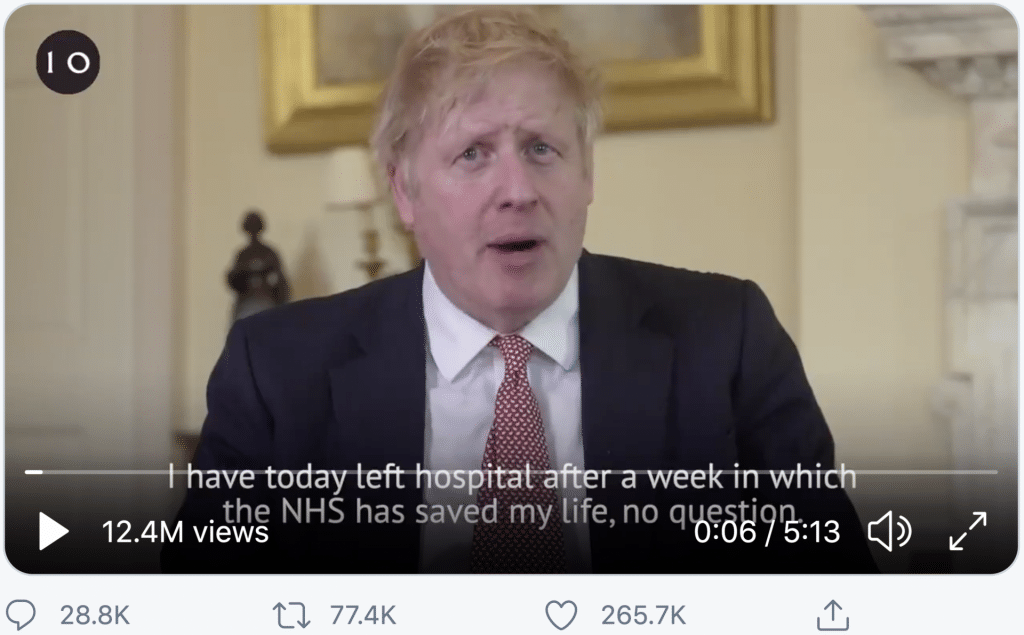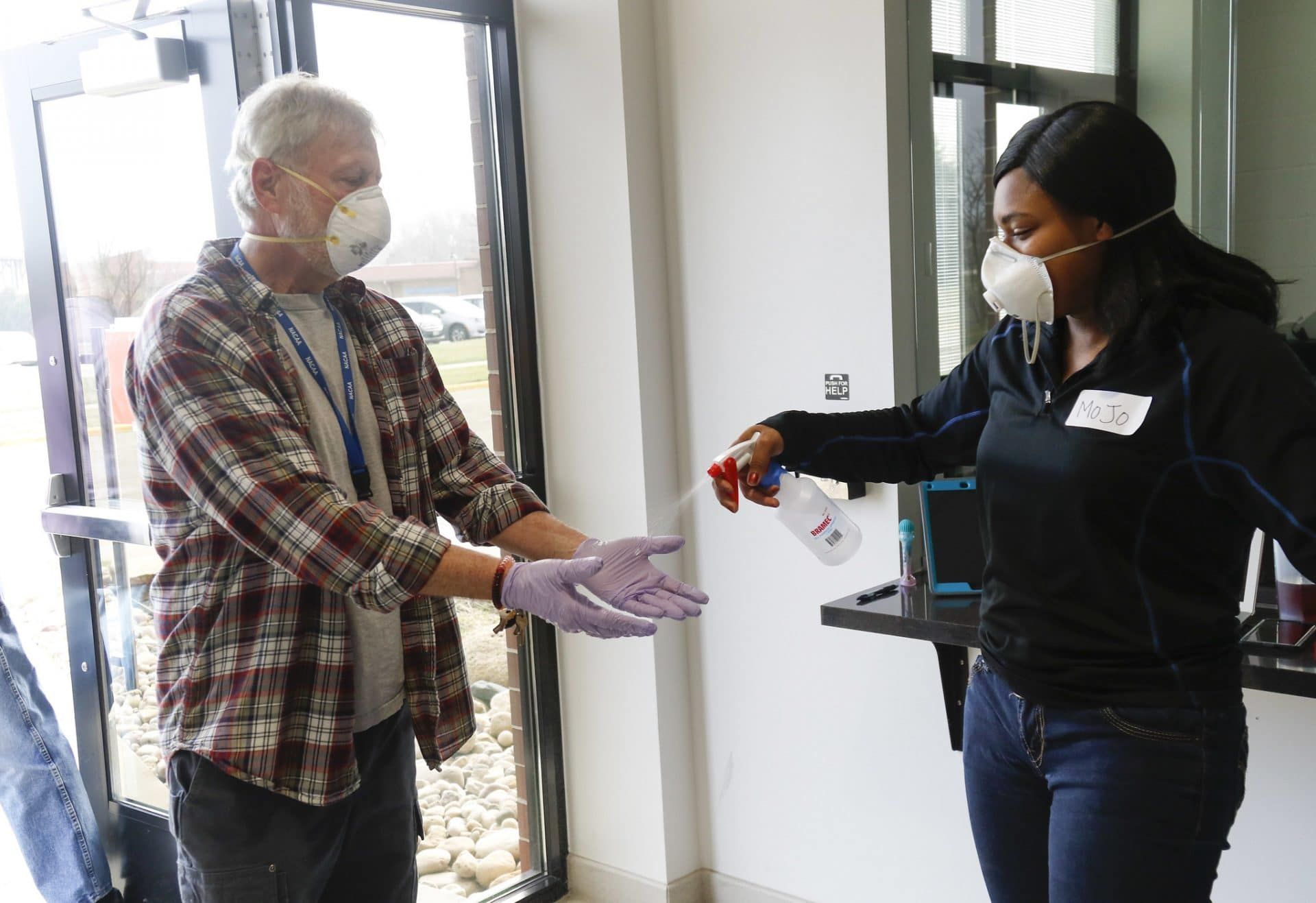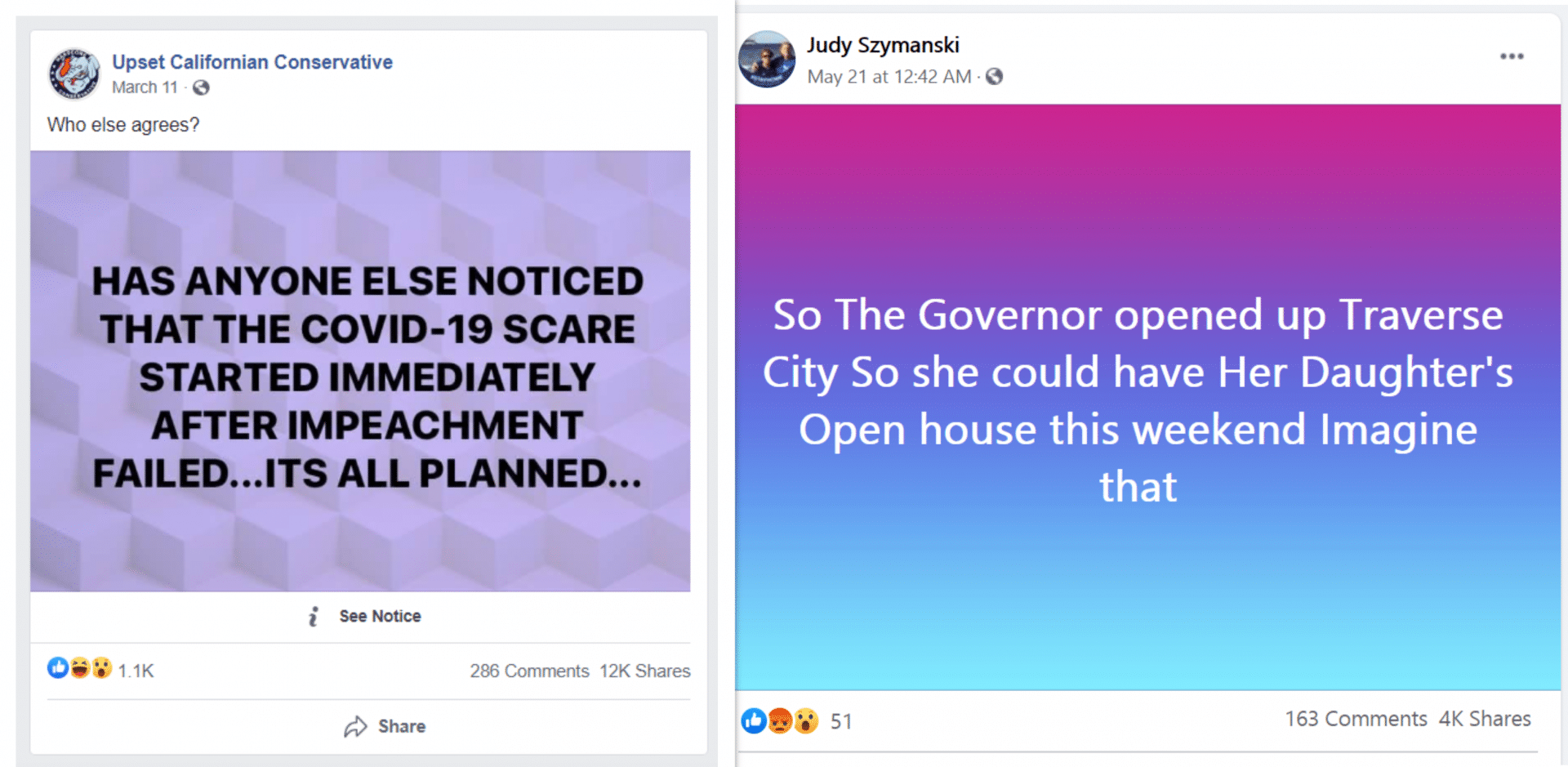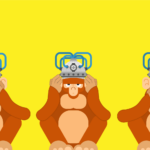Infodemic Monitor
A jet ski vacation during the coronavirus lockdown? Online liars want to make you mad at politicians
By Giorgio Musto, Kamya Yadav, Audrey Yan, Jan Oledan, Jacob N. Shapiro, July 13, 2020
 British Prime Minister Boris Johnson posted a message on Twitter after being discharged from the hospital. A fake Twitter account had earlier spread the false news that the prime minister had died after being hospitalized with COVID-19. Credit: Twitter.
British Prime Minister Boris Johnson posted a message on Twitter after being discharged from the hospital. A fake Twitter account had earlier spread the false news that the prime minister had died after being hospitalized with COVID-19. Credit: Twitter.
In April, British Prime Minister Boris Johnson got so sick from COVID-19 that his father said he thought his son “almost took one for the team.” After Johnson was hospitalized with a fever and other symptoms, a seemingly trusted media source published some shocking news: the prime minister had died. At first-glance, the tweet appeared to be from the BBC’s breaking news team.
Alas, @BBCbreaki is not the venerable public media network’s breaking news feed; that would be @BBCBreaking. Johnson pulled through and was discharged from the hospital one week after being admitted. Politicians like the prime minister, however, will likely continue to be the target of COVID-19-related misinformation, victims of the so-called information pandemic, or infodemic, that has spread as far and wide as the coronavirus itself and shows no signs of abating any time soon.
We already know coronavirus is affecting the nuts and bolts of democracy, that is, real-world elections. Staging an election runs the risk of exacerbating disease transmission as people line up to vote in person or election workers interact with voters. By mid-June, the nonprofit International Foundation for Electoral Systems recorded 106 postponed election events in 61 countries and eight territories because of COVID-19. With countries like the United States slated to hold consequential elections this year, online COVID-19 misinformation will likely continue to add another layer of uncertainty.
Since March, as part of a Princeton University-run project, we’ve tracked the COVID-19-related misinformation narratives that have been spreading in countries around the world. At this point, we’ve documented almost 370 narratives that have clear political motives or implications. In some cases, these narratives can bolster or discredit specific political or cultural figures. Other times they appear to undermine specific institutions and groups in society.
While we often don’t know who is responsible for politically relevant coronavirus misinformation like the hoax about Johnson dying, which was retweeted hundreds of times before Twitter deleted the fake BBC account, online political influence campaigns, including those perpetrated by governments, are becoming a widespread phenomenon. That’s one conclusion we’ve drawn from another set of projects we are running at Princeton’s Empirical Studies of Conflict Project, in which we’ve systematically tracked and classified foreign influence efforts. We identified 53 campaigns where governments targeted 23 countries with misinformation, propaganda, and politically divisive content between 2013 to 2018, and recently finished data collection on dozens more from 2019 and 2020.

Disinformation during election season. Coinciding as it does with important elections, the pandemic is proving to be great fodder for politically motivated misinformation on and off line. In the United States, the narratives have focused on domestic politics and politicians, as well as on foreign affairs. A prominent strand of misinformation popular among supporters of President Donald Trump positions COVID-19 as a plotline in a deep-state conspiracy: a Democratic-party ploy, along with this year’s impeachment hearings, to discredit the president. Trump’s son Eric Trump, offered up a version of this false narrative on Fox News in May when he said social distancing measures were really part of a plot to harm his father’s chances in November’s election, after which, he said, the virus would “magically all of a sudden go away.”
As states have been reopening from lockdown, misinformation on emergency responses to the virus has cropped up on social media, frequently in posts targeting Democratic politicians. Democratic governors have been seen as putting in place stricter anti-epidemic policies than their Republican counterparts, such the governor of Georgia, who shut down the state’s economy later and reopened it earlier than many other states, or the governors of Texas and Arizona, who at one point moved to limit the ability of municipalities to require face masks in public.
In a May Facebook post, Gov. Gavin Newsom, a California Democrat, was falsely blamed for breaking his own lockdown measures for a vacation in Montana. The post was liked and shared thousands of times. In Michigan, Gov. Gretchen Whitmer, a Democrat who saw her national profile rise during the pandemic as she imposed stringent lockdown measures in her hard-hit state, was falsely accused on Facebook of opening up Traverse City for an open house held by her daughter. One post was shared at least 4,000 times.

Another prominent line of COVID-19 misinformation in the United States has been to paint the coronavirus as a bio-weapons plot. This narrative may represent an attempt to shift the blame for the pandemic elsewhere, namely to China. That’s a goal that Trump, who has faced withering criticism for his administration’s handling of the pandemic, has demonstrated he shares many times, recently, for example, calling the virus the “kung flu.” The misinformation narratives in many countries--including China, where one prominent official for a time promoted the false idea that the US military had brought the virus to Wuhan--are shaped by previous and ongoing societal and geopolitical disputes.
Political misinformation about the virus isn’t limited to the United States.
The electoral dimensions of coronavirus misinformation were hard to miss in France during the run-up to a recent round of local elections on June 28. In the French system, local elections are an important factor in determining the country’s political equilibrium. In fact, major parties, including President Emmanuel Macron’s La Republique en Marche party and far-right leader Marine Le Pen’s National Rally party, are already looking forward to the next presidential election in 2022.
The French government imposed a lockdown to halt the spread of the coronavirus in mid-March and misinformation targeting the government and its handling of the emergency followed closely. Posts from March on Twitter and Facebook, for instance, suggested that Macron’s government was part of a sinister plot. The former French health minister, the posts say, had banned the over-the-counter sale of hydroxychloroquine, an unproven therapy for COVID-19 in January, shortly before the coronavirus pandemic gained steam. One Facebook post reportedly compared the ban to genocide, according to the French newspaper Le Monde. The government’s decision to ban over-the-counter sales of the politically fraught drug was actually made last November, well before China first reported coronavirus cases, according to Le Monde.
Macron and his wife Brigitte Macron were targets of misinformation on a more personal level. While the country was under lockdown, they were falsely accused of having enjoyed jet skiing in the waters of the Mediterranean. The First Lady was even accused of using a government helicopter to send her daughter, allegedly infected with the new coronavirus, to Marseille to be cured by Didier Raoult, a researcher known for his contested claims on the use of hydroxychloroquine to treat COVID-19.
In the Philippines, while the next presidential election isn’t until 2022, COVID-19-related misinformation is coming at a particularly perilous time for the island nation’s democracy. Much of it serves to boost President Rodrigo Duterte’s standing or diminish that of his opponents. Since his election in 2016, Duterte has waged a bloody war on the drug trade that has led to the deaths of 12,000 Filipinos, mainly poor urbanites, according to Human Rights Watch. Duterte has frequently been accused of harboring authoritarian tendencies; he was featured, for instance, in a Time Magazine cover story about the “strongmen era.” The politically motivated COVID-19 misinformation spreading online in the Philippines is happening at what could be a crucial inflection point for democracy there. The administration recently shut down the longest running media conglomerate and the legislature could soon pass a controversial anti-terror bill with a blurry definition of “terrorism.”
Several social media posts praising Duterte’s response to the pandemic have included fabricated photos with misattributed quotes from world leaders such as Queen Elizabeth and even celebrities like Jimmy Fallon. There’s the Facebook post of Trump asking Duterte for help in dealing with the coronavirus crisis, something the US president hasn’t done. Another Facebook post that falsely claimed opposition party senators didn’t support a coronavirus relief package was shared over 10,000 times, according to the Filipino news site Rappler. Yet another post falsely attributed a quote to Vice President Leni Robredo that suggested she opposed the social distancing measures designed to control the spread of COVID-19. (In the Philippines, the vice president is elected separately from the president and Robredo represents a different party from Duterte, with whom she has clashed.)
Misinformation, politics, and racism. Racist or xenophobic COVID-19 misinformation has frequently tied the pandemic to liberal political policies and parties. In Germany the narratives are homegrown, and a prominent source of such stories are far-right politicians and parties such as the Alternative for Germany (AfD). The targets of the stories vary from opposition parties to the minority Muslim population in the country.
There have been fabricated images depicting members of the ruling Christian Democratic Union flouting their own social distancing policies as well as wildly inaccurate theories that Chancellor Angela Merkel is hiding in a bunker in Paraguay, never to return. AfD party members have also criticized safety measures to contain the spread of the virus, claiming that the government was intentionally exaggerating the severity of the crisis.
At the same time, prejudice against Muslims in Germany is deeply entrenched, according to research reported on by the Daily Sabah, an English-language newspaper in Turkey. That’s also reflected by the rapid growth of the anti-immigrant AfD party. In a profile of the party in the German public media outlet DW, AfD is described as seeking to seal the European Union’s borders and implement identity checks in Germany. It’s concerned about the so-called Islamification of the country. Merkel, by contrast, has been seen as welcoming to migrants fleeing from countries such as Syria. Coronavirus-related misinformation narratives are seeking to raise suspicions about the country’s Muslim population. One narrative circulated on social media claimed, for instance, that the government would ease social distancing measures to allow large social gatherings during Ramadan, a special dispensation for Muslims. Another narrative claimed that cities are using coronavirus safety measures as a guise to secretly sneak asylum seekers into Germany.
Anti-Islam narratives have been adapted to local contexts. In India, social media posters have accused Muslim populations, without evidence, of deliberately spreading coronavirus in predominantly Hindu India.
Muslims have faced increasing discrimination in India as Prime Minister Narendra Modi’s Hindu nationalist party has risen to prominence. Last year, the government passed what many deemed an anti-Muslim citizenship law, leading to huge protests in the capital Delhi and elsewhere. Now anti-Muslim prejudice is being incorporated in the COVID-19 misinformation spreading online.
In April, after several members of the Tablighi Jamaat, a Sunni Muslim missionary movement in India, tested positive for coronavirus, Boom, an Indian fact-checking organization, reported on viral Facebook posts which repurposed an old video of members of India’s Bohra Muslim community cleaning food leftovers from a plate. In the viral posts, the video is described as showing Muslim men licking utensils to spread the coronavirus.
One Twitter hashtag that went viral earlier in the pandemic sums up the anti-Muslim flavor of Indian coronavirus misinformation: #CoronaJihad. Social media users, popular media outlets, and politicians alike have fanned the fake news fire, blaming Muslims for the spike in cases. From accusations that Muslims are spitting on and licking objects or breaking lockdowns and not following social distancing norms, the Muslim community has borne the brunt of disinformation in India.
The coronavirus has been a globally disruptive event. Considering the toll the disease is exacting in countries around the world, a price measured in lives lost, families torn apart, and economic prospects crushed, one shudders to think about how things could possibly be worse. The COVID-19 misinformation cropping up on smartphones, computers, and television screens the world over could foreshadow dire consequences, ones perhaps harder to quantify. It could erode democracy in places like the Philippines, lead to rising xenophobia in Germany, or weaken confidence in elections in the United States.
If those things happen, the virus will have done more than sicken us; it will have reshaped our world for the worse.
Editor’s note: This is the second installment in a series by researchers working with Princeton University’s Empirical Studies of Conflict’s COVID-19 disinformation project. Led by professor Jacob Shapiro and Jan Oledan—a research specialist for the conflict studies project—students at Princeton and other universities are cataloguing the various false narratives cropping up online about the COVID-19 pandemic. Readers can see the team’s disinformation spreadsheet here.
Together, we make the world safer.
The Bulletin elevates expert voices above the noise. But as an independent nonprofit organization, our operations depend on the support of readers like you. Help us continue to deliver quality journalism that holds leaders accountable. Your support of our work at any level is important. In return, we promise our coverage will be understandable, influential, vigilant, solution-oriented, and fair-minded. Together we can make a difference.
Keywords: Coronavirus, Disinformation, Infodemic Monitor
Topics: Analysis, Disruptive Technologies
Share: [addthis tool="addthis_inline_share_toolbox"]


















